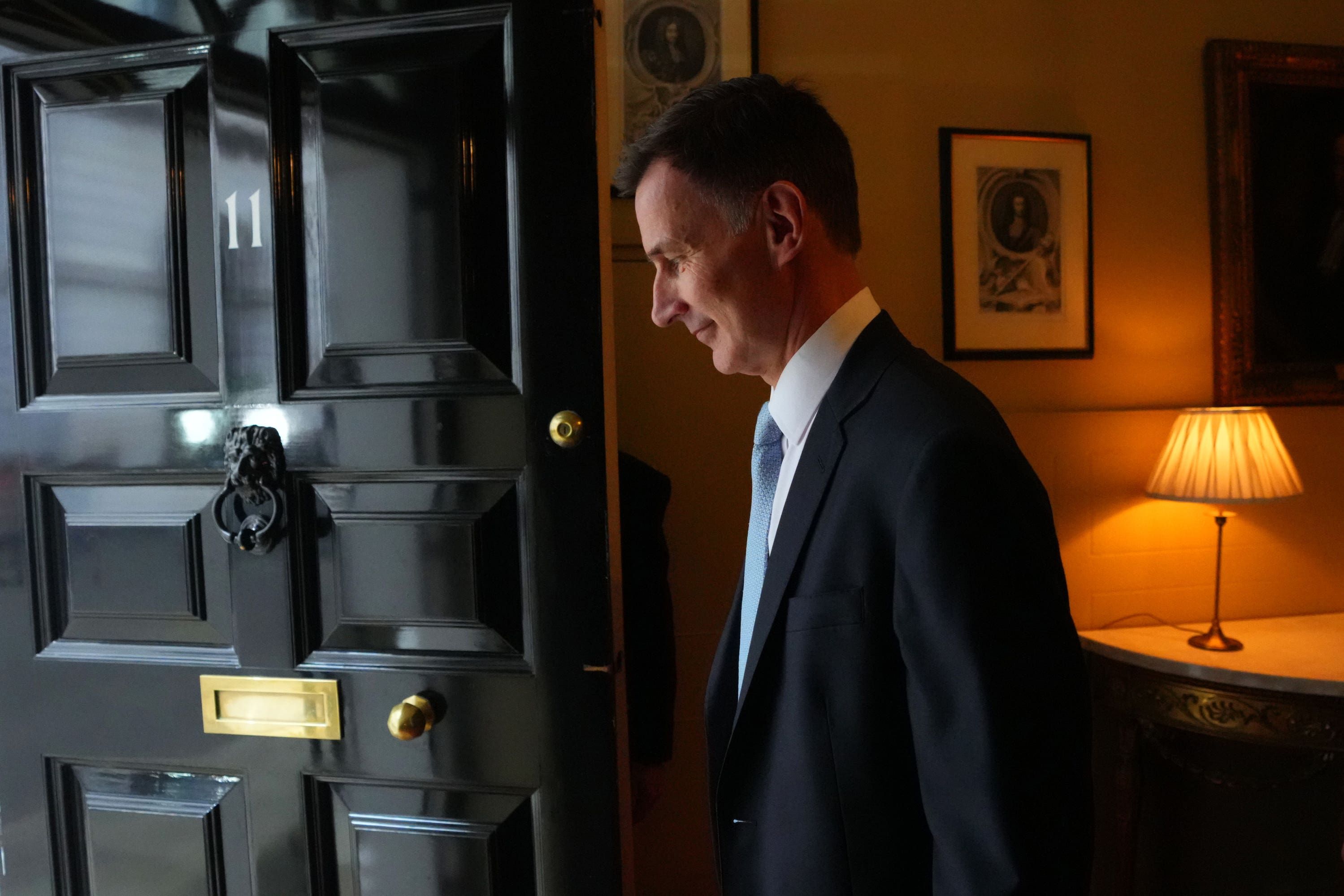The hidden ‘horror’ in this lacklustre Budget could yet be its saving grace
By mistake rather than design, Jeremy Hunt has done the right thing and imposed a stealth tax on the one demographic group that is most likely to vote Tory – rich pensioners, says John Rentoul


There is always a next-day story about some horror hidden in the small print in a Budget. It is one of the constitutional functions of independent think tanks, since about the time of Magna Carta, to point it out.
This spring Budget was no different. Nobody liked it much on the day, although instant opinion polls found that most people approved of most of the measures in it – especially the big tax cut in the form of lower national insurance contributions.
But it wasn’t until the Resolution Foundation crunched the numbers that it became clear who the losers were: pensioners who pay income tax. They don’t pay national insurance, and so cannot benefit from the 2p-in-the-pound cut in the rate of contributions – neither the one that took effect in January, nor the one that will come in next month.
On the contrary, they are being hit by inflation, which has eroded the value of the tax-free personal allowance, and which is dragging more and more people into the higher income-tax bracket. Better-off pensioners are the ones who are really feeling the effects of what is known as fiscal drag. For them, Jeremy Hunt really is the “fiscal drag queen”, as he was dubbed on Thursday by Amol Rajan during their post-Budget interview on Radio 4’s Today programme.
It took a little while for this stealth tax increase to become clearer, probably because a lot of people assume that the only thing that matters to pensioners is the state pension. This is protected by the triple lock, which means that it is about to go up by a substantial 8.5 per cent next month, because it is linked to the rate of earnings growth in September.
So poorer pensioners, who rely solely on the state pension, are all right – but most pensioners have additional sources of income, and they are being clobbered.
Quite right, too, of course. Better-off pensioners have had it too easy for decades, as the Conservative Party in particular has tried to buy their votes by giving them favourable tax treatment – including the very exemption from national insurance contributions that has hit them now.
The Labour Party has not been above a bit of bribery either, with Gordon Brown’s winter fuel payment handed out to millionaire pensioners and old-age paupers alike a prime example.
As a matter of intergenerational equity, it is quite right that younger people of working age should be given a break – or that older people should bear a fairer share of the record-breaking tax burden, whichever way round you want to look at it.
But it seems strange that a Conservative chancellor, in an election year, should impose a stealth tax on the one demographic group that is most likely to vote Tory, namely better-off pensioners.
If Hunt and Rishi Sunak were ruthless about trying to minimise Tory losses at the election, they should probably have cut income tax instead of national insurance. But perhaps they are deluded enough to think that the Tories can still win the election, and so are aiming the tax giveaway at working-age voters, who are more likely to say that they currently intend to vote for other parties.
Whatever the thinking behind it, they have added to the rich history of Budget blunders that took a while to make it into the headlines. There was George Osborne’s pasty tax in the 2012 Budget, when he was so focused on the controversial cut in the top rate of income tax, from 50p to 45p in the pound, that he overlooked the likely reaction to some of the smaller measures he announced to pay for it. He was forced into an embarrassing U-turn a few days later.
There was Philip Hammond’s attempt in 2017 to discourage people declaring themselves self-employed as a way of cutting their tax bill that was condemned as a tax on the “white van man” – and which also had to be reversed days later.
The worst of all was Gordon Brown’s final Budget in 2007, when he was so desperate to go out with a bang – cutting the basic rate of income tax – that he abolished the 10p-in-the-pound starting rate to pay for it, without realising that it would make millions of low-income workers worse off. That one took months for the fuse to burn; the bomb blew up when he was prime minister, and Alistair Darling, his successor at No 11, had to be sent out to fix it.
But this must be the first time that the chancellor has done the right thing by mistake.
The Budget probably won’t save the Tories at the election, but at least they managed to spread the tax burden more fairly. Even if they didn’t mean to.






Join our commenting forum
Join thought-provoking conversations, follow other Independent readers and see their replies
Comments